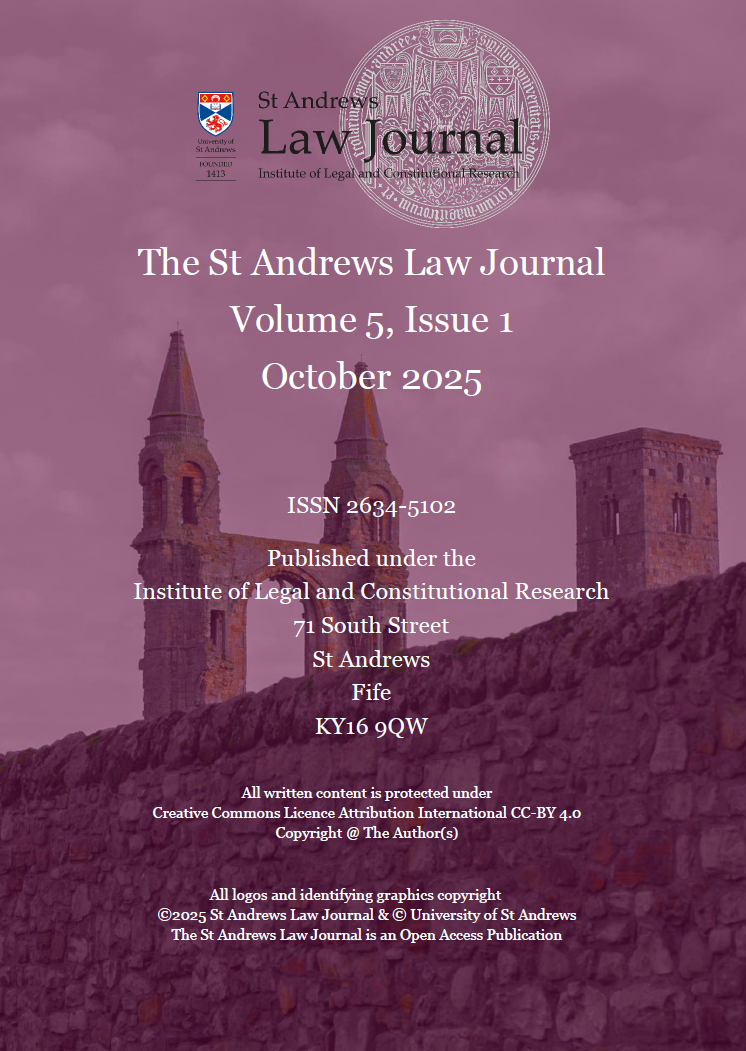The Nordic Theory of Constitutionalism: The Origins of the Nordic Social Contract
Main Article Content
Abstract
Scandinavia is one of the happiest regions in the world thanks in part to its generous welfare systems. Alongside public policy, Finnish journalist Anu Partanen, together with Swedish historians Henrik Berggren & Lars Trägårdh, argue that this success is due to the unique Nordic Theory of Love: that crafting an autonomous citizen shapes a much happier society. This short article analyses the historical development of the Nordic Theory of Love; introducing the concept to the sphere of legal studies to further understand the social contract theory. The article finds that the constitutional relationship between the individual and the State developed much stronger in Scandinavia than in other Western societies enabling the success of the Nordic model.
Article Details

This work is licensed under a Creative Commons Attribution 4.0 International License.
Authors who publish with this journal agree to the following terms:
- Authors retain copyright and grant the journal right of first publication with the work simultaneously licensed under a Creative Commons Attribution License that allows others to share the work with an acknowledgement of the work's authorship and initial publication in this journal.
- Authors are able to enter into separate, additional contractual arrangements for the non-exclusive distribution of the journal's published version of the work (e.g., post it to an institutional repository or publish it in a book), with an acknowledgement of its initial publication in this journal.
- Authors are permitted and encouraged to post their work online (e.g., in institutional repositories or on their website) prior to and during the submission process, as it can lead to productive exchanges, as well as earlier and greater citation of published work (See The Effect of Open Access).

